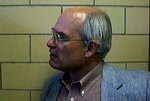An LA Times article discusses some of these results, methods, and criticisms. Some of the past results have been 180 degrees apart. Look at the results they cite about coffee and its effects. In 1981, a study concluded that two or three cups of coffee a day tripled the risk of pancreatic cancer. In 2001, another, larger study concluded that the earlier results were not true. Similarly, a 1981 study found that drinking coffee reduced the risk of colorectal cancer. Predictably, a later study in 2005 contradicted it.
Most epidemiological studies are observational. As we discuss in chapter 10, observational studies (e.g., naturalistic observation and participant observation) do not alter the situation under observation. Other ways to conduct epidemiological research is through cohort studies, case control studies (or retrospective), and cross-sectional studies.
The big advantage of epidemiological studies is that they are relatively cheap to conduct. However, they do not allow researchers to make cause-and-effect conclusions about the variables under investigation.
Much better results are provided by randomized clinical trials (or what we call true experiments). Randomized clinical trials are the medical version of true experiments. In a clinical trial, two (or more) groups are created by a random procedure.
Another LA Times article highlights some of the recent research discrepancies discovered by observational methods vs. clinical trials.
A long New York Times article also covers the issues inherent in observational research. That article concludes:
- "All of this suggests that the best advice is to keep in mind the law of unintended consequences. The reason clinicians test drugs with randomized trials is to establish whether the hoped-for benefits are real and, if so, whether there are unforeseen side effects that may outweigh the benefits. If the implication of an epidemiologist's study is that some drug or diet will bring us improved prosperity and health, then wonder about the unforeseen consequences. In these cases, it's never a bad idea to remain skeptical until someone spends the time and money to do randomized trial and, contrary to much of the history of the endeavor to date, fails to refute it."



No comments:
Post a Comment